Situated on the banks of the Thamalakane River, our barn was a curiously large edifice because its original purpose was to treat and store elephant hides. Its walls were made of chicken wire that had once seen a splash of cement – to reduce, but not quite eliminate, transparency – and this makeshift structure was strung between widely spaced mopane tree poles. The uprights had long since rotted away at their base, adding to local conjecture that the roof would soon collapse and inflict grave physical harm upon us. The remaining thatch was so thin that alluring patches of sunlight sprinkled across the interior of the barn and the tropical rain fell inside with much the same ferocity as it did on the outside. Consequently, our collection of buckets became truly impressive as we tried to catch the rainwater before our furniture floated out of the door, and during any severe downpour we stayed alert, slopping around our lounge in raincoats as we emptied bucket after bucket into the bath.
You may be wondering why we tolerated such a derelict abode. Available housing in Maun – of any standard – was rarer than sobriety at the Duck and we were grateful to find somewhere to call home. We even became attached to its eccentricities and lingered longer than our landlady had anticipated. She was waiting only for us to tire of the place and depart, as she was determined to level it before it fell down and wisely refused to spend money on it. We did not want to pour our own cash into someone else’s property either, so we tolerated the disadvantages instead.
Our bathtub was designed to wash the hide of the largest animal to tramp our planet and was quite unlike any we had ever encountered before, or since, for that matter. Deep enough to drown in while sitting upright, which in itself is a little unusual, it was also almost long enough in which to do laps and, as a result, required significantly more water than an average tub.
Normally, soaking neck deep in a steaming bath of the earth’s most precious resource merely demands the suppression of conscience. Our impediments, however, ran rather deeper. The first problem was that the taps provided only cold water. Either we had a bracing soak, which in midwinter was a form of unnatural torture, or we heated pot after pot of water on the gas stove. It was quite astonishing just how many pots were required to provide a tepid mix for a tub of that size. Heating the water, however, was certainly the lesser of the two problems we faced when drawing a bath. Far more challenging was sourcing any water at all. We were not on mains supply, the property did not have a borehole and the Thamalakane no longer flowed, thus we had to pump directly from a permanent pool in front of the plot.
This pool was the happy consequence of an eccentric act by a fellow named Naus who, in the 1930s, was tasked with the challenge of clearing the build-up of reeds and papyrus that was choking the life from the vast inland delta. That papyrus and reeds occur all over the Okavango, as a natural consequence of the shifting watercourses and the innate shallowness of this water wilderness, did not deflect Naus’s enthusiasm to alter radically this unique wonderland. The only problem he faced was how. One evening he was playing with a water pistol when he noticed how much further it would shoot if a nozzle was fitted to the end of the barrel. In a moment of epiphany, he knew how to rid the Okavango of papyrus. All he needed to do was to create a series of ‘water pistols’ by building numerous dams all over the delta, each with a constricting hole in the middle of the wall which would cause the water to squirt out with the force needed to carry the reeds off for tens, if not hundreds, of kilometres. To start his project he built three such dams upstream from Maun, and the retaining wall of one doubled as a bridge near where we lived.
The flow of water did indeed speed up as it passed through the restriction and this gouged out a deep permanent pool below the bridge before the current slowed down again about 30 metres downstream, leaving the offending papyrus and reeds largely unscathed. Naus may have failed to clear the reeds – the drying of the river in subsequent years took care of that little problem – but his pool afforded five hippos, a few large crocodiles and us a supply of life-giving liquid. When the river stopped flowing, the hippos established permanent residence because there was nowhere else to go, and the pond slowly turned a dark, dirty colour with arresting bits of partly digested vegetation floating in it.
The process of enticing water from the hippo pool and into our bath presented interesting challenges. First, we needed to visit the only hardware store in town, to buy a tinny-looking petrol-driven water pump and assorted bits of piping, non-return valves, clamps and a host of unidentifiable gadgets which the store claimed were essential. These mystifying parts had to be carted down to the water’s edge to be connected to the pipe leading to the water tank – all this while wading waist-deep in crocodile- and hippo-infested waters. The pump then had to be primed, a task which proved to be much more difficult than described in the instruction manual in both impenetrable Mandarin and unintelligible English. Somehow, the newly joined pipes always leaked air into the system, signalling a long and arduous battle. Once victory on this small front was achieved, we had to fire up the engine, another process that was far more complicated than the manual indicated. ‘Setting choke to full way pulling cord smooth hard once engine to start’ meant 20 minutes of energetic tugging before the engine took. The unbridled joy, the setting of the heart to wing on hearing water squirting merrily into the tank, was almost too much to bear. With yelps of delight we would run muddy water – which still harboured solid bits of chewed vegetation – into every pot and kettle we possessed, including a plastic tub for Django, and finally filled our bath to the brim. How we wallowed, gleefully, with the hippo poo.
On many a morning, however, when we eagerly turned the tap on for yet another indulgent soaking, all we would hear was the hollow gurgling of empty pipes. Upon inspection, we would discover that the 10 000-litre water tank had leaked our precious liquid into the sands overnight. Then someone sneaked in under cover of darkness and stole the pump. After that, we had to take the replacement home at the end of every day and regularly submit ourselves to the entire procedure of reconnecting and priming it. Within a week the aluminium thread had stripped and the new pump was impossible to prime. We left it outside for some wanton thief, but none showed interest in the scrap.
The hippo pool was right in front of Bobby John’s house, which we had to pass in order to reach the pump. Django enjoyed that because there was a chance to meet up with his first grown-up friend and misguided mentor – Nari, Bobby John’s black Labrador. Nari adopted the pup and taught him some fun games, which included chasing the neighbours’ chickens and hiding bones. One morning as we passed by, Nari saw the cocky rooster whose pre-dawn crowing drove me to thoughts of violence, leading his hens into Bobby John’s garden, and immediately gave chase. Django sped through the open gate to support his buddy and feathers flew from startled fowl as they tried to escape the small but very mobile and noisily ferocious bundle of fur and the chubby Labrador who, as a result of a crocodile attack, was no longer nimble. For the sake of good neighbourliness we called Django, who returned immediately with a bunch of feathers in his mouth, which, as luck would have it, belonged to the crowing cock. Salome firmly explained that this was not acceptable behaviour – and that was the last time Django ever chased any kind of bird. Never once did he get a hiding for bad conduct. All he needed was to understand what was not tolerable and he simply did not repeat it, and so we had to be careful never to scold him unnecessarily, in case we put a stop to perfectly acceptable behaviour.
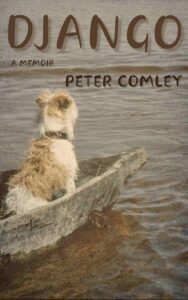
Django is free on Kindle Unlimited for three months from date of posting.

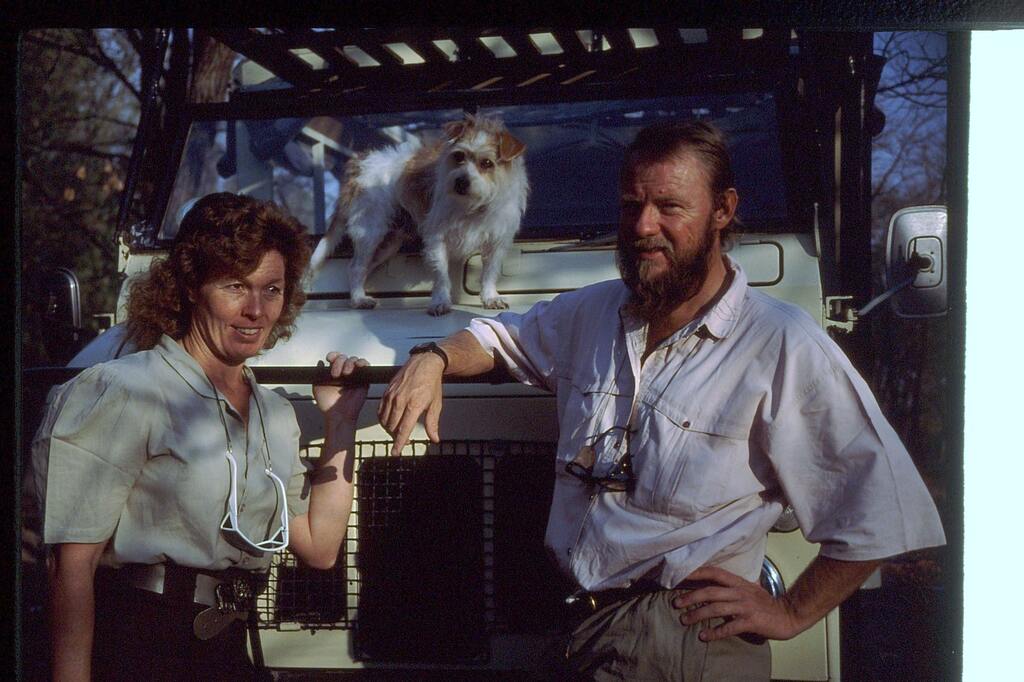
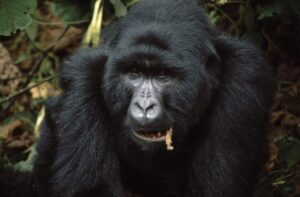
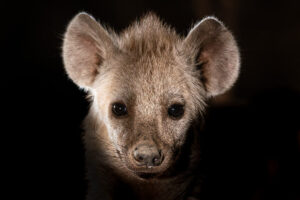
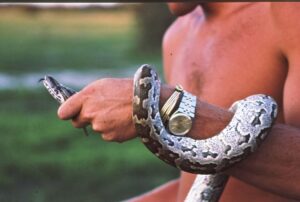
It absolutely agree with the previous message